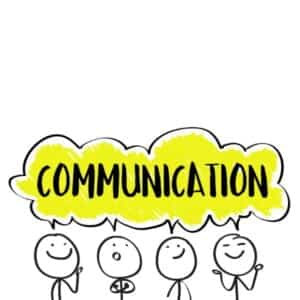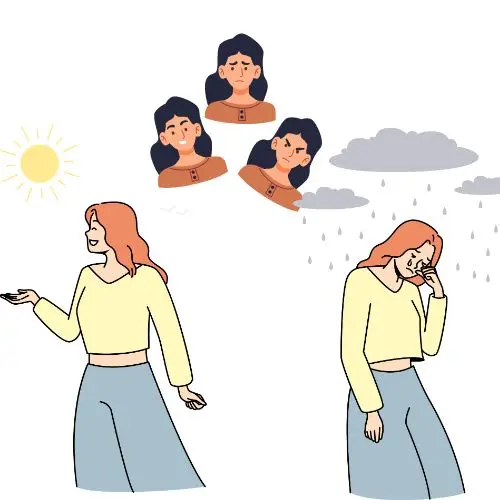Introduction
Ties of relationship can be the most beautiful between two human beings who live together, sharing their lives. Of course, relationships are full of emotions, experiences, and even moments that shape the bond between partners. Yet it also seems people can experience mood swings ranging from happiness to anger and sadness. While mood swings are one of the normalizations of being human, once they start affecting a relationship, it is almost necessary to address the issue seriously and appropriately. In this article, I try to furnish an all-inclusive guide on dealing with mood swings in a relationship through practical strategies, tips, and advice leading to a harmonious partnership.
Understanding Mood Swings
Definition and Causes
Mood swings are abrupt and extreme shifts in one’s emotional state. These may happen suddenly or gradually and sometimes relative to mood, energy, or general well-being. The triggers for mood swings are varied and range from stress, hormonal changes, mental health illnesses, and even medication in some instances. Identification of the causes is essential for handling the condition better.
Impact on Relationships
Mood swings are quite stressful for relationships as often, due to a dramatic reaction, it becomes unpredictable in response by the person undergoing the mood swing. Confusion, misunderstanding, or a constant feeling of being “on eggshells” usually happens with mood swings. If left unaddressed, mood swings can impact the trust and intimacy built within the relationship; therefore, the sooner one learns how to manage mood swings in a relationship, the stronger the bond will be among the couple and the healthful and more durable the relationship will be.
Strategies to Deal with Mood Swings in a Relationship
Open Communication

Communication, openness, and honesty are at the heart of dealing with mood swings in a relationship. It requires building a safe, non-judgmental space where both partners feel free to express their thoughts and feelings. Ask your partner what’s going on in their life, and tell them what’s happening in yours. In fact, sharing all the changes you are experiencing and why you think it is happening creates a deeper understanding between you and your partner with sympathy. You make sure that both understand each other’s feelings.
Practice Empathy and Understanding
Emotional understanding and empathy are very important in determining mood swings in a relationship. Put yourself in the shoes of your partner; understand how they feel. Remember that mood swings are not intentional and, in most cases, out of one’s control. Being empathetic with your partner’s emotional state helps you avoid misunderstandings and promotes mutual respect. Developing a sense of empathy can create some emotional safety, thus bringing a nurturing environment into the relationship.
Set Boundaries
It is during such quiet times that setting up boundaries and mutual agreement needs to be made between partners as well to shield both their selves and their relationship from emotional abuse. These boundaries must ensure that both individuals meet, hear, and respect all security and safety parameters. Whether it is acceptable will always be a question that needs to be discussed and defined during mood-swings time periods. As people can evolve, revisit these boundaries regularly to ensure they remain relevant and helpful as the relationship evolves. Setting boundaries might provide one with a much-needed sense of stability and security and reduce what could be the totally disruptive effect of mood swings on the partnership.
Find Healthy Coping Mechanisms
List healthy ways of coping that will help control the mood swings. Encourage self and the partner to look out for activities that can be channeled to positive emotional expressions. Such areas include exercise, meditation, journaling, and creative outlets such as painting or playing a musical instrument to handle mood swings. One also needs to find healthy coping mechanisms to feel less tense and reduce stress. Try them together to see what works for you and your partner.
Professional Help and Support

Mood swings may become an overwhelming and recurring dilemma that enters all life phases, making professional help necessary at this point. But there’s a thing. One should know when the mood swings have reached such levels that one needs professional help. These signs may include changes in sleep or appetite, withdrawal from loved ones, persistent feelings of sadness or hopelessness, or thoughts of self-harm. Seeking professional help is not a sign of weakness but rather an active step towards getting better and improving well-being and the relationship as a whole.
Types of Professional Help
It could be required to meet other professionals if needed. Anyhow, a psychiatrist, psychologist, or licensed counselor can be particularly helpful as they are trained to diagnose and treat mental health conditions; this will also apply to mood swings. Professional therapists may always recommend CBT or DBT for different and particular reasons that come below the surface; different techniques and tools learned via those therapies may help navigate and manage emotions. Also, medication management may sometimes be part of the treatment plan.
Support Groups
The support groups help connect people literally to face such effects through in-person meetings or online communities; other people experiencing the same are wonderful to share experiences with, comfort each other, reduce feelings of isolation, and give practical advice as support groups often provide a platform for individuals to discuss their experiences, learn from others, and gain many valuable insights into managing mood swings. If you’d like, we can also discuss local community resources or online forums focused on helping people deal with mood swings or other related mental health issues.
Conclusion
Mood swings are among the toughest to deal with in a relationship; however, this does not mean they can’t be overcome. Understanding the problem, keeping an open line of communication, exercising empathy, setting boundaries, finding healthy ways to cope with it, and getting professional help if needed helps couples win over mood swings’ ups and downs. Patience, understanding, and love are essential to managing mood swings and creating a healthier and stronger relationship. But it would heighten, if not create, emotional intimacy and surely overall relationship satisfaction by working through mood swings together.
Read Also : How to Reconnect After a Relationship Break

